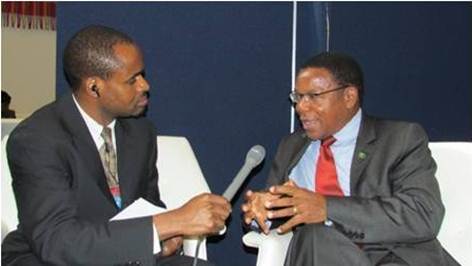Solina Health was commissioned to evaluate the Nigeria Governors’ Immunization Leadership Challenge.
Introduction
Nigeria Governors’ Immunization Leadership Challenge is a performance based funding award to facilitate increased political commitment and funding for the eradication of polio and improvement of routine immunization in Nigeria. The Challenge is funded by the Bill and Melinda Gates Foundation and offers two types of incentives to winning states:
A $500,000 grant to winning states for funding a priority health project. An additional $250,000 is available as counterpart funding if matched by a state’s contribution of the same amount.
Despite increased investment in Nigeria, funding of routine immunization systems was low among Nigerian states
Personal recognition of the winning states’ Governors by Mr. Bill Gates.
Solina Health has been commissioned to evaluate the Challenge for meeting its objective. The evaluation will also seek to understand whether increased political commitment has resulted in local actions by senior government officials and how these changes in political commitment and action have translated in the states’ improved performance against polio and routine immunization outcome goals.
Intervention and Findings
The evaluation was conducted as a retrospective analysis and included 3 core components:
Desk review and analysis of quantitative program data, quarterly Abuja Commitment data for 2011 and 2012, and Leadership Challenge indicator data for 2012.
Qualitative interviews of key immunization stakeholders at the national, state and LGA levels.
Review and analysis of the various forms of media coverage and publicity given to routine immunization, Nigeria’s polio eradication initiative and the Challenge through 2012.
It was found that there was a significant increase in polio program leadership among all state governors from 2011-2012. This increase in leadership was even more pronounced among governors of states at high risk for polio in Nigeria.
It was also found that states in Southern Nigeria at low risk for polio outperformed all others in translating political commitment to local actions.
Impact
We assessed 86 facilities and carried out supportive clinical mentoring in 139 facilities across the states.
And identified the deficient capacity areas and conducted training for about 719 facility staff on:
Clinical Service delivery
Clinical monitoring
Financial and program management
Infrastructural upgrades
Human resources
Worked with NPHCDA to accomplish:
Community outreach and advocacy visits to 2 states, 7 local government and 21 communities.
Appointment of PMTCT Community Resource Persons in 21 PHCs to establish facility-based support for PMTCT
Activation of WDCs in 21 communities
The client has taken our evaluation into great consideration in designing and implementing the second round of the challenge




